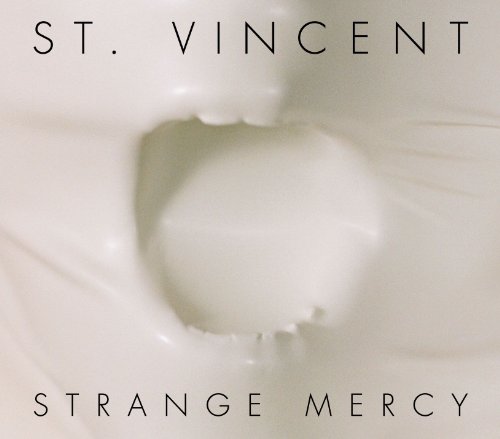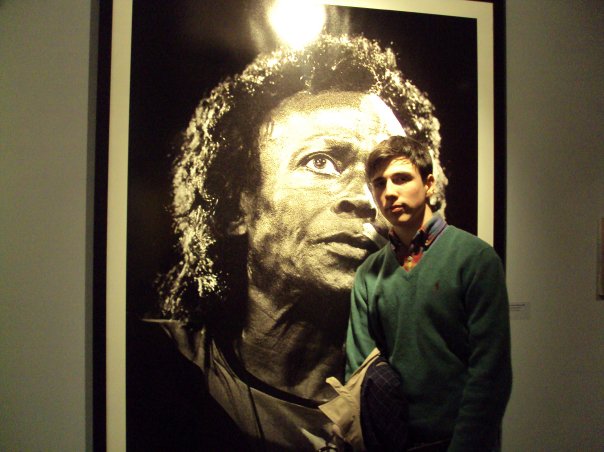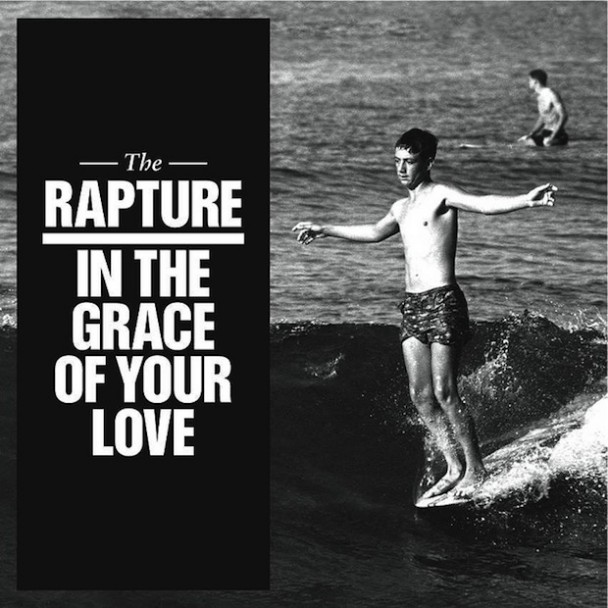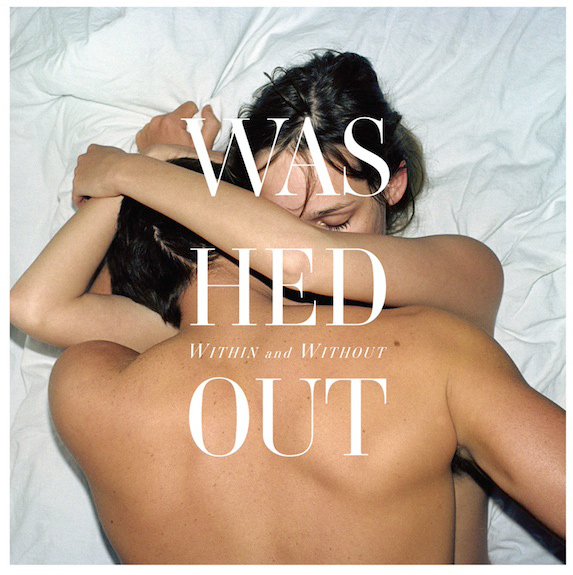Strange Mercy
By Bruce 25 Comments

On January 29, 2010, my best friend and I took the 1 Train over to the scenic (and white as white can be) Lincoln Center for the Performing Arts near Columbus Circle, Manhattan. We walked past the landmark fountain and headed straight into the box office area where I had purchased our St. Vincent tickets three months prior. The concert was a limited show at the Allen Room in the Jazz building. They informed us that our tickets had been sent over to the Allen Room box office, not where I had initially purchased them, so, fearing lateness, we dashed – in fifteen degree weather, mind you – about four or five blocks in the opposite direction. Not exactly an easy task in dress shoes, but this was my first concert; I practically dressed like an Oscar nominee that night. After almost blindly knocking over a hotdog vendor on the sidewalk at one point, we arrived on time: Our respective eighty dollar apiece tickets in hand and a hope that the “free wine” courtesy of our stage-side table didn’t come with a nagging I.D. check. (I was nineteen at the time.)

When we got upstairs, we saw some nice (and massive) art on the walls along with a small foldout table selling copies of Actor along with t-shirts I didn’t much care for. Not many people had arrived. We wandered around, and my friend had to use the bathroom, so I waited for him in the hallway. Then, carrying a sparkling red, two-tone guitar, David Byrne walked right past me. Psycho Killer…qu’est-ce que c’est? So, doing what I thought was most appropriate, I shouted, “fa-fa, fa-fa, fa-fa, fa-fa-fa, far better!” He kind of turned his head at that, just a little bit. About a half an hour later, security let us in to the main theatre. The stage was in front of a clear window, a full moon against the New York City skyline. Very pretty.
Without an opening act, Annie Clark made her delayed entrance with a procession of musicians and proceeded to own the modestly sized stage with a performance of Actor in its entirety. I might add that, being right against the stage, the solo to “Black Rainbow” damn near sent me into cardiac arrest. Other highlights included: An amazing impromptu rendition of “Mistaken for Strangers” by the National, lovely underage guzzling of surprisingly expensive wine, an unannounced duet with David Byrne, Bon Iver (Justin Vernon) taking on the role of backing vocalist for most of the night, and of course, Annie mocking her own placement on the Twilight Soundtrack, “Roslyn”, when time came for her and Bon Iver to fulfill their contractual obligation to perform it. By the time “The Party” concluded the show, after an insane version of “Your Lips are Red”, I was so drunk that I stumbled outside afterward and started to harass random Manhattanites on the street as to whether or not they knew any good local restaurants.
I apologize for the lengthy pretense, but it’s important to understand that I had the utmost expectations for Strange Mercy. Forgoing a critique of the album, I’ve sort of shot myself in the foot with my affection for this woman; not only did I expect too much, but I expected it from someone who has matured into an entirely different person, a different artist.
But this progression was clearly foreshadowed: The independence of Marry Me surely appealed to fans of Kate Chopin (“Now, Now”, “Marry Me”), whereas Actor was at times outright romantic (“The Party”, “Just The Same But Brand New”). The prerelease vignettes for Strange Mercy (intended to be humorous) enforce yet another character change, depicting Annie as a cold and manipulative heartbreak with a bright red smirk on her face. But in her songwriting, this attitude is more a cautiousness developed over time than it is arbitrary toying—though that’s definitely a byproduct; and the fantastical magic of Actor, for better or for worse, is replaced on Strange Mercy with not-so subtle bursts of distorted soloing and malicious bitterness.
“Cheerleader” makes the declarations Story of an Hour couldn’t, “I’ve told whole lies with a half smile,” but the guitar eruptions are more unpleasant than they are cathartic. “Northern Lights” begins with a punk-like energy akin to “Actor out of Work”, but can’t contain itself.
“Strange Mercy” is a standout, using the guitar for more than just improvised scatting. “Oh little one, your Hemingway jawline looks just like his,” Annie carries along, showing that she hasn’t lost a beat when it comes to great narrative. The story turns to a melancholy guitar riff with some ghostly background noise to contrast with the calm beginning.
“Surgeon” is both violent and threatening, but it’s one of the catchier songs. On both “Surgeon” and “Cruel”, Annie takes blatant pop structure and gets more out of it than she does with the noisier approach of most of the album.
The first half of Strange Mercy didn’t thrill me, nor did it create the need to chase this violent femme fatale down the alleys depicted in “Cruel”. The second half was arguably more uneventful. “Dilettante” bored me; “Champagne Year” begins like a cover of Jeff Buckley’s “Hallelujah” before swaying into the sort of slow, thoughtful balladry that Actor did much, much better; “Year of the Tiger” shoots for an obvious oriental motif and makes a parody of itself in the process.
The cover art supports what I felt listening to the album: Suffocation. Whereas every windpipe, violin, and horn on Actor established the scenes the way a score should, the music on Strange Mercy is buried, literally, under unnecessary experimentation. (“Neutered Fruit” even goes as far as to feature a talk box solo.) I can understand Annie’s desire to break free from the preciousness that encased her first two records, but it was that inherent sweethearted quality combined with her sinister songwriting that created a fascinating juxtaposition. But all of that is gone here in favor of an abrasive guitar record that rarely interested me.




Log in to comment